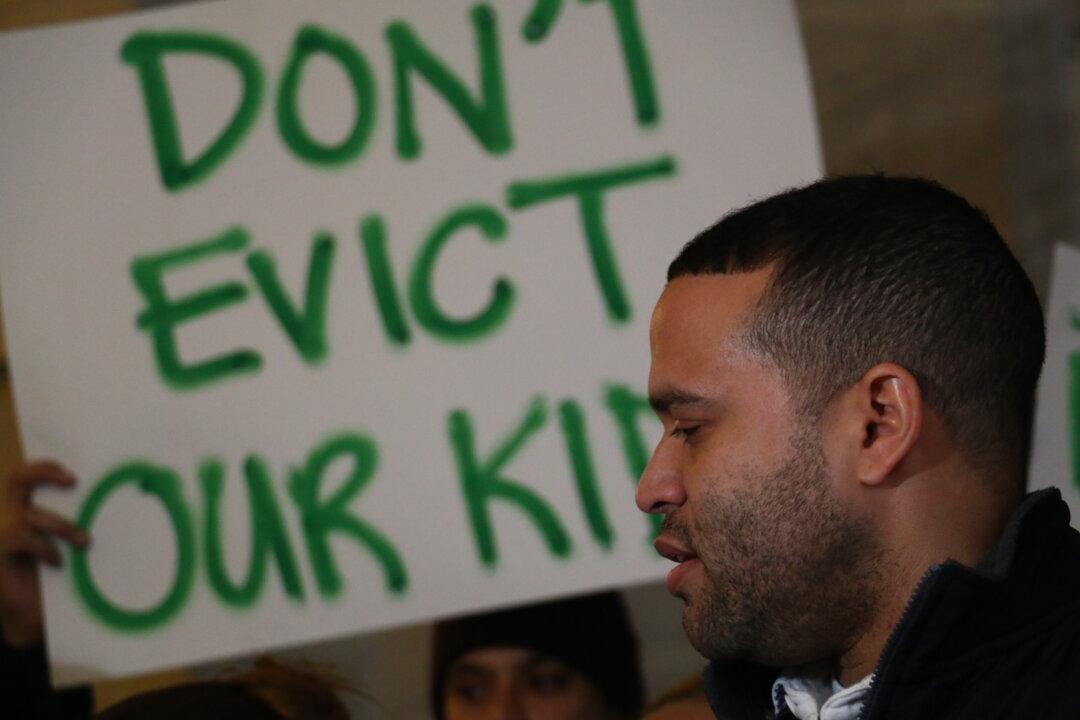NEW YORK—Charter school advocates from the group Families for Excellent Schools gathered in the lobby of New York City Hall Monday to protest two lawsuits against the Board of Education (BOE) to limit co-located charter school expansion in New York City.
“I live in Crown Heights. Our families need more quality education options, not less. Our school is primarily minority families that can’t afford another option,” said Yvonne Guillen, whose daughter attends Girls Prep Bronx.
In October 2013 the Panel for Educational Policy, an arm of the Department of Education, approved 42 school co-locations, a dramatic increase from previous months.
On Dec. 27, 2013, several City Council members and organizations filed a lawsuit against the BOE to stop the school co-locations, some of which involved charter schools. The lawsuit claimed that the BOE had not done its impact assessment correctly and did not give parents sufficient input before the co-locations were approved.
In July 2013 the United Federation of Teachers (UFT) filed a lawsuit against the BOE as well on similar grounds. It implied that the co-location approvals were pushed through with a political agenda.
“The proposals at issue here would bind the next mayoral administration to the same controversial education policies that the current administration has embraced. It is the height of hubris to suppose that future elected administrations cannot appropriately govern the NYC school system. The BOE’s attempt to concretize the policies of its current leadership is as transparent as it is illegal,” reads the lawsuit, filed on July 18 with the New York State Supreme Court.
The UFT also charges that the impact statements are not accurate because some of the schools would open two school years later.
Former Mayor Bloomberg nurtured the growth of charter schools as a way to fix the city’s failing public school system. Charter schools are funded partially with public funds but operate privately, many by nonprofits.
Mayor Bill de Blasio said during his campaign that charter schools would not expand under his leadership and would be required to pay rent.
While the approvals may or may not be politically motivated, the UFT also has its motives. According to the New York City Charter School Center only 10 percent of New York City charter schools employ unionized teachers, compared to traditional public schools, which only employ unionized teachers.
Of the 183 charter schools in the city, 59 percent have been co-located in district public schools, which critics say take away resources from the public schools where they are co-located.
While charter schools have seen some measure of success compared to conventional public schools, they still serve only a small portion of the population.
The New York City Charter School Center said there are 70,000 charter school students, whereas there are 1.1 million traditional public school students in New York City.
Holly Kellum is a special correspondent in New York.





